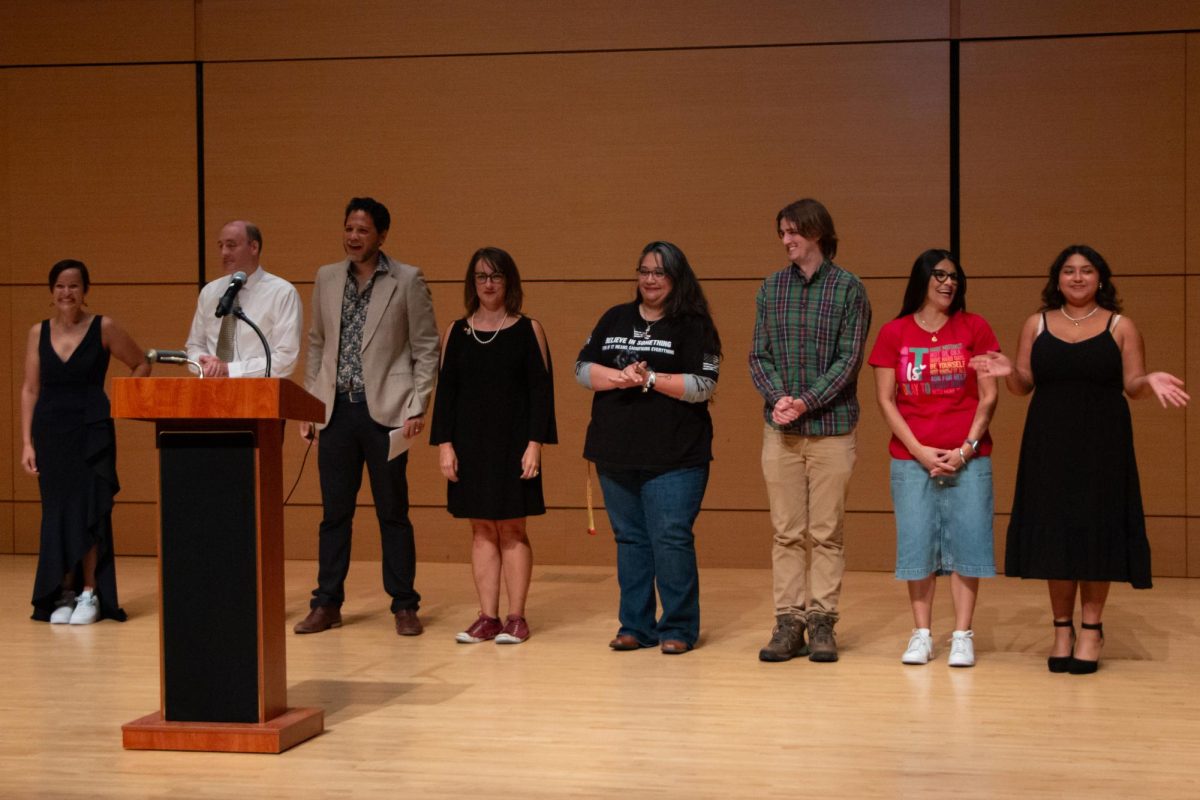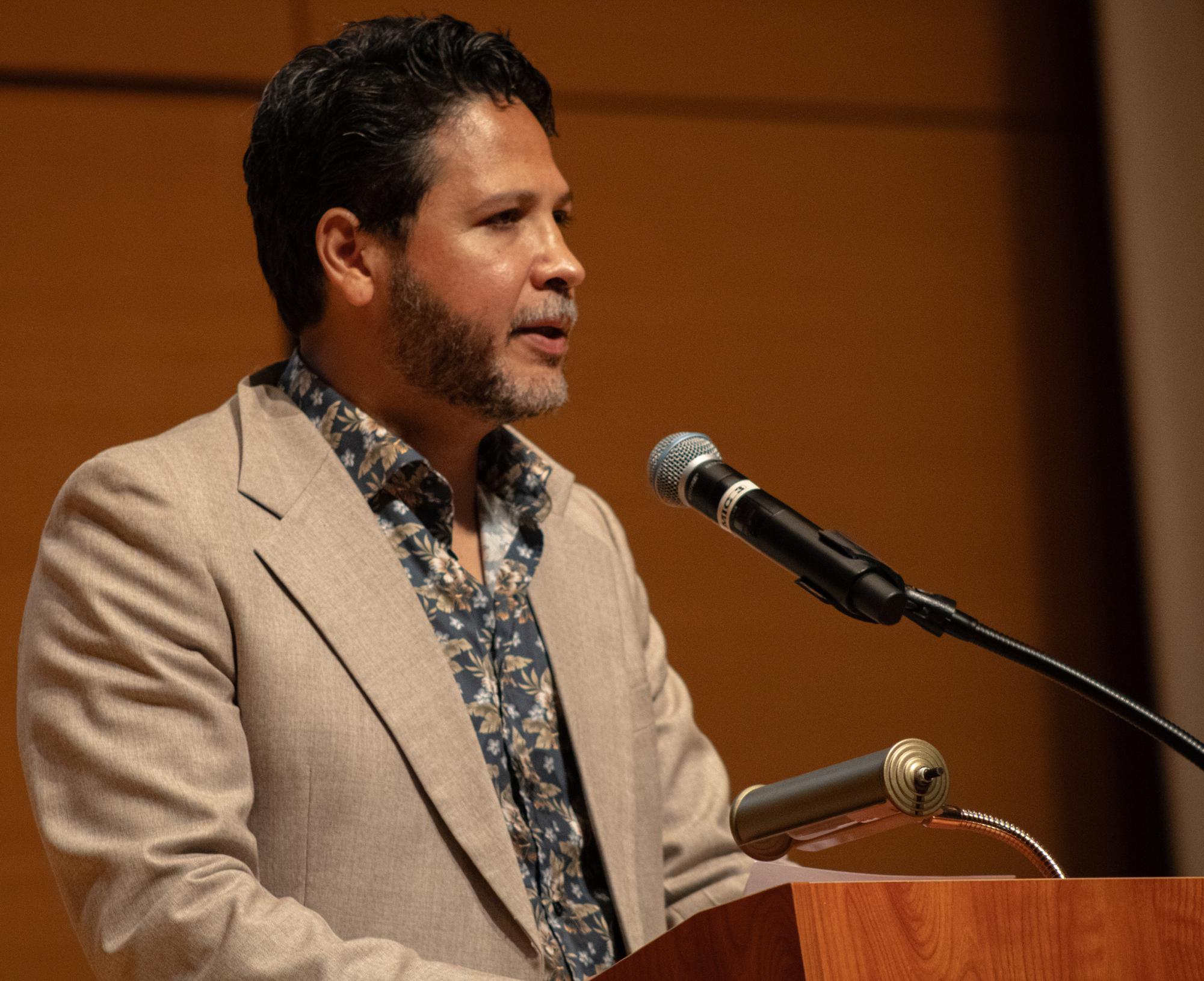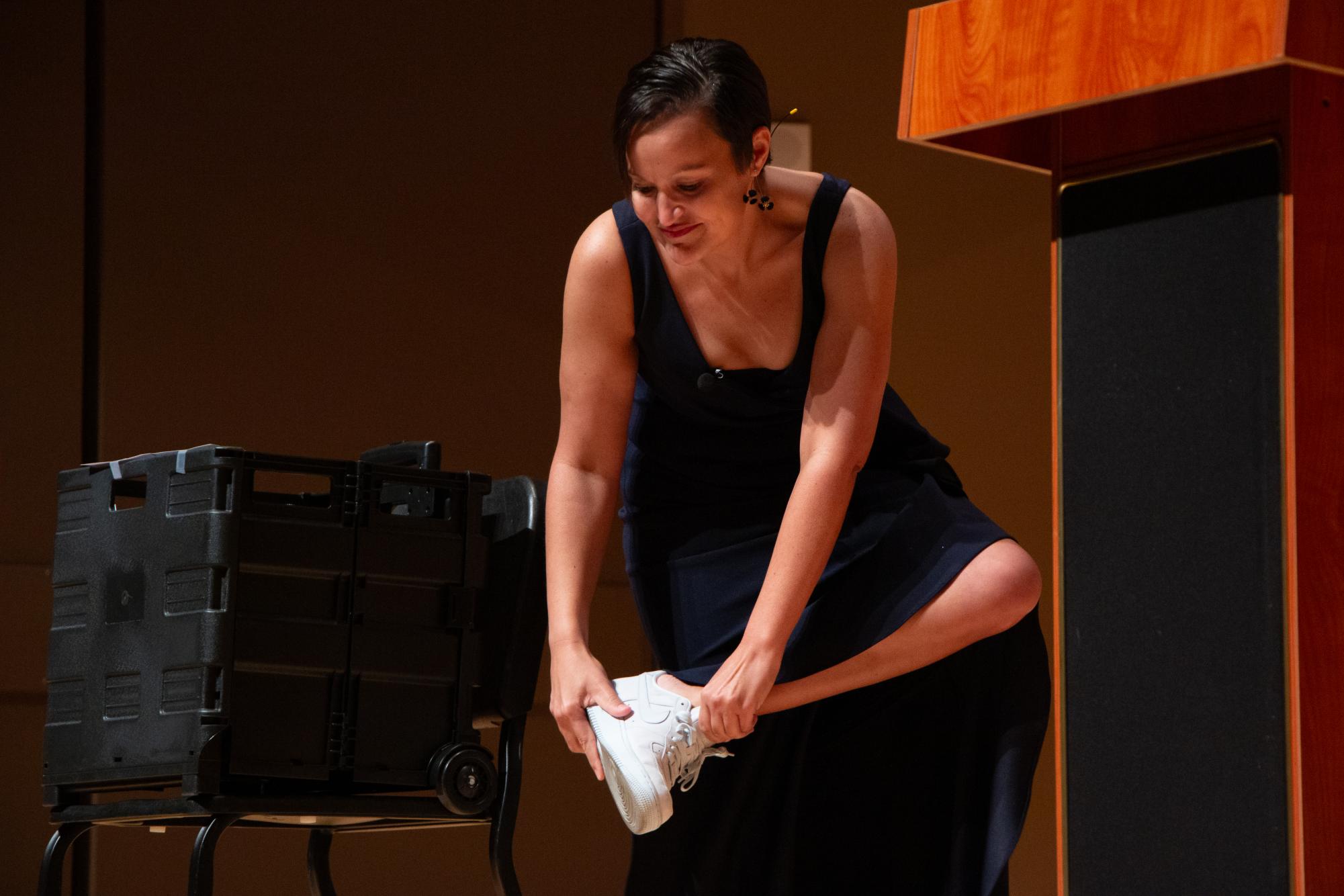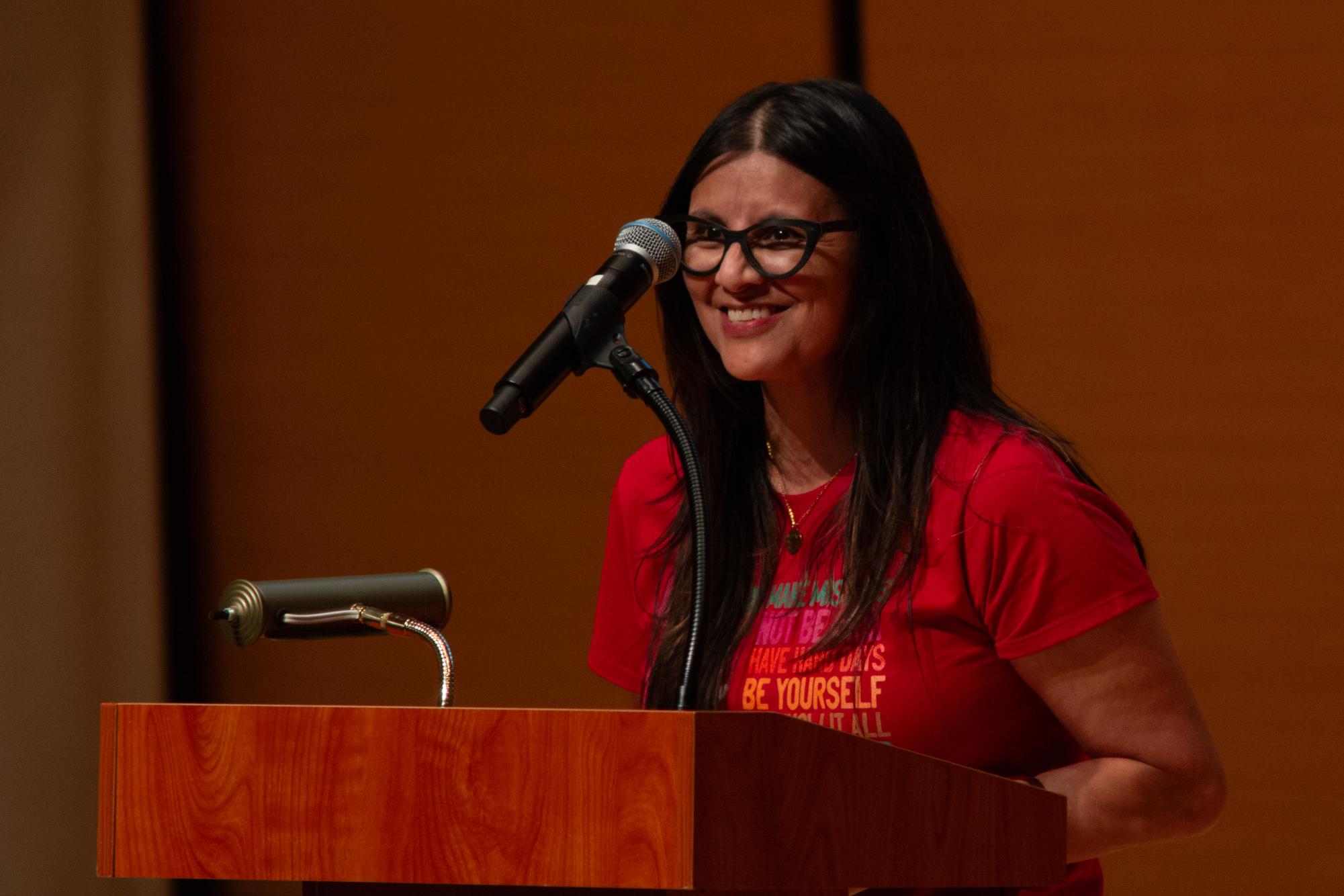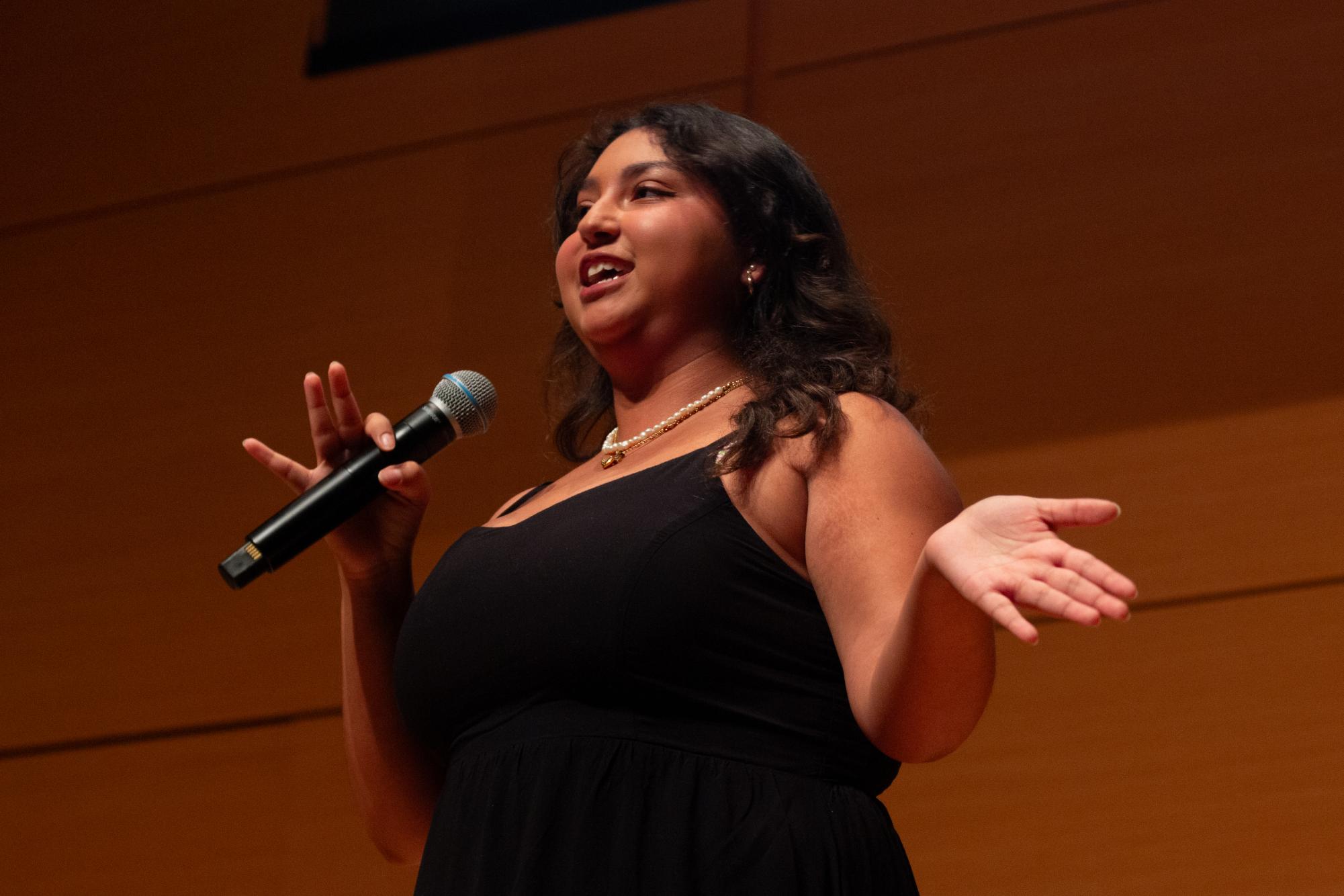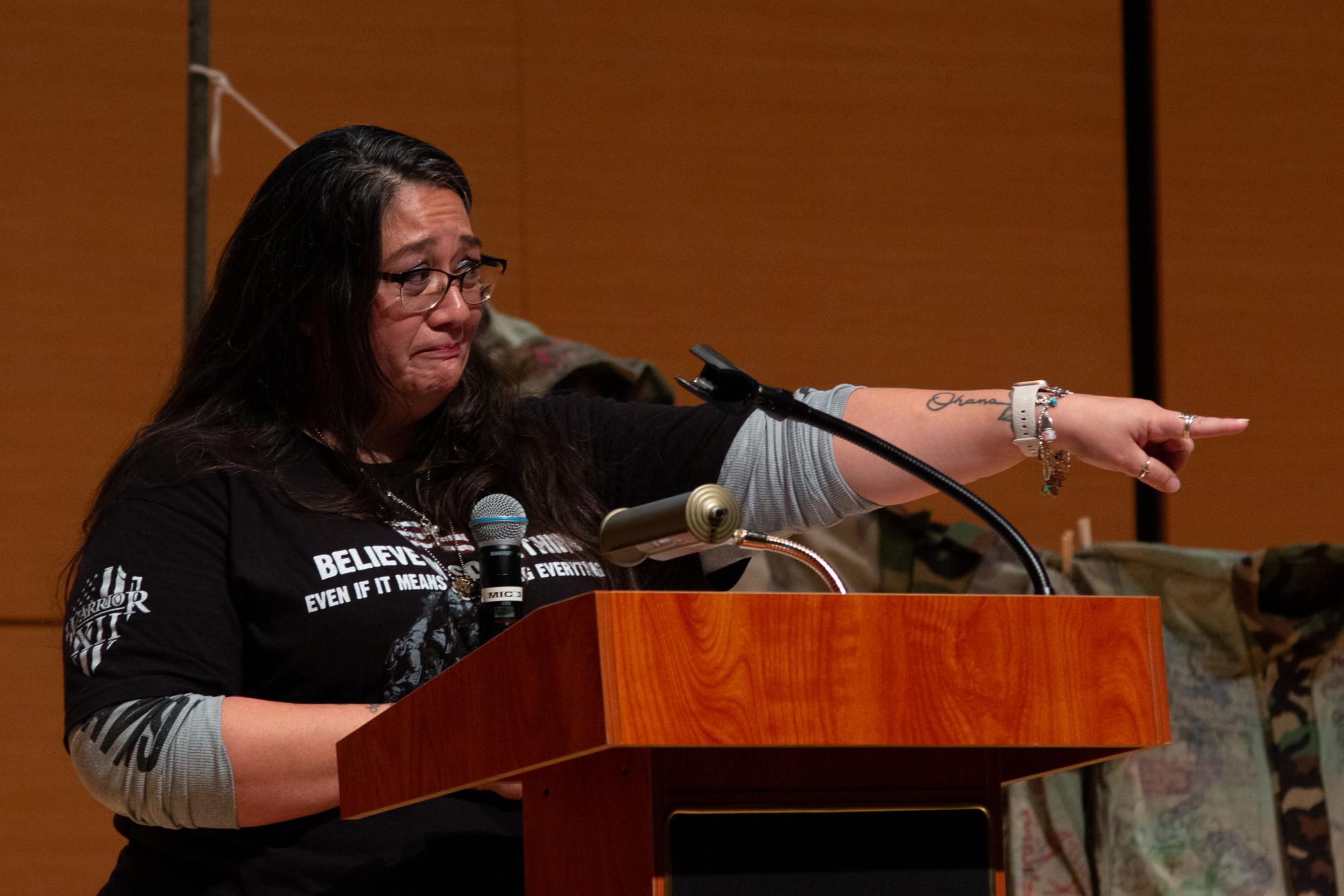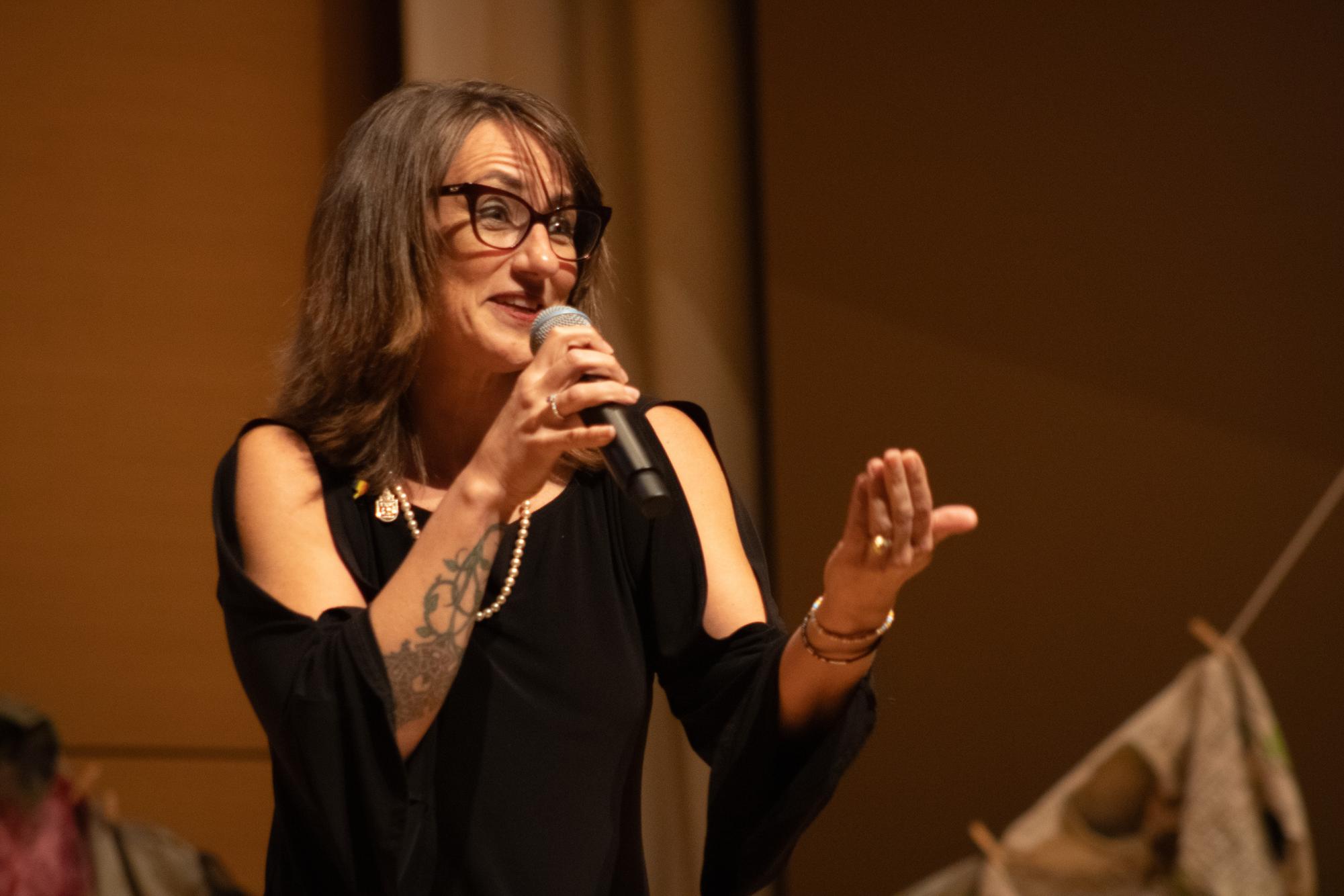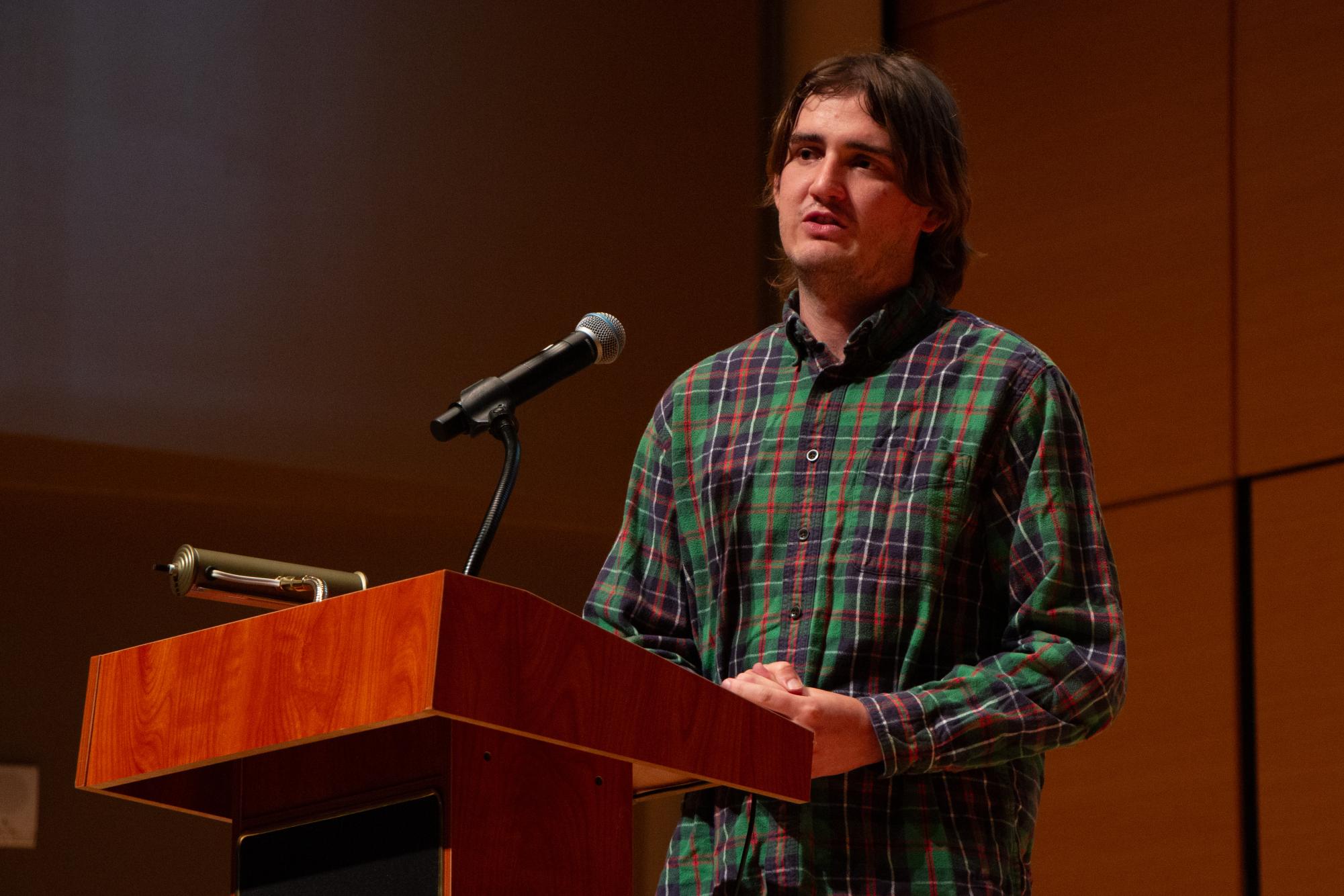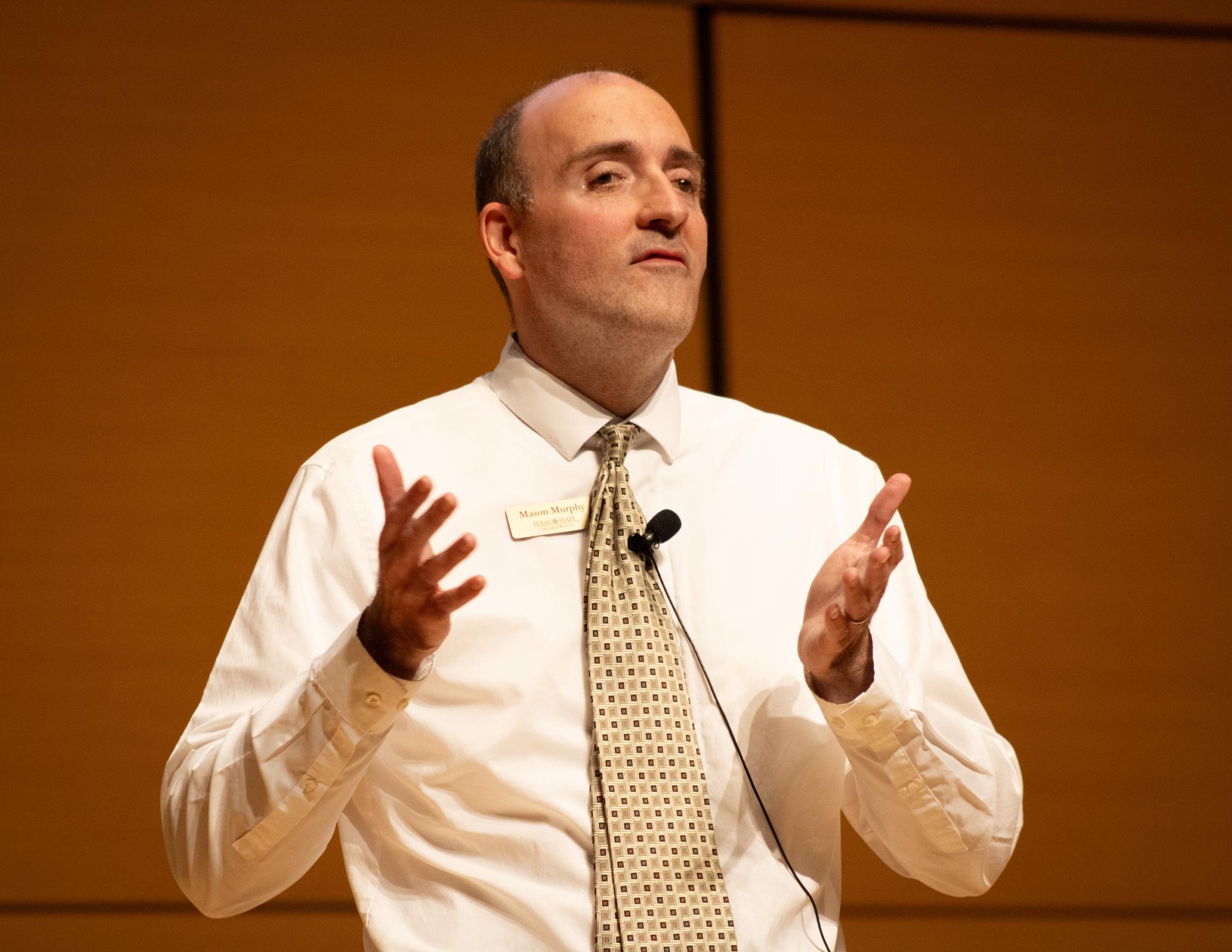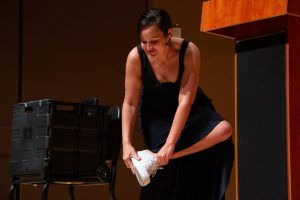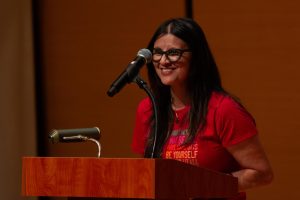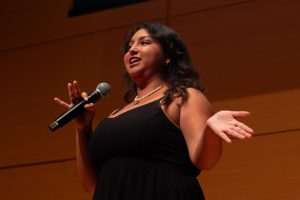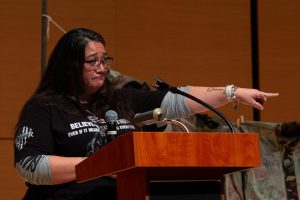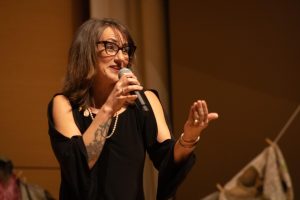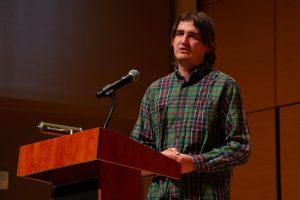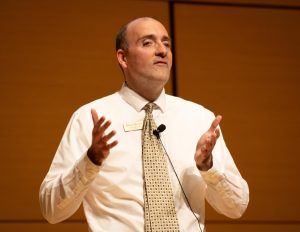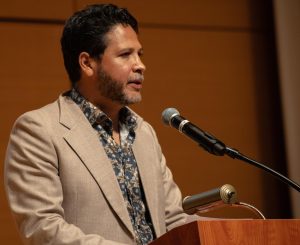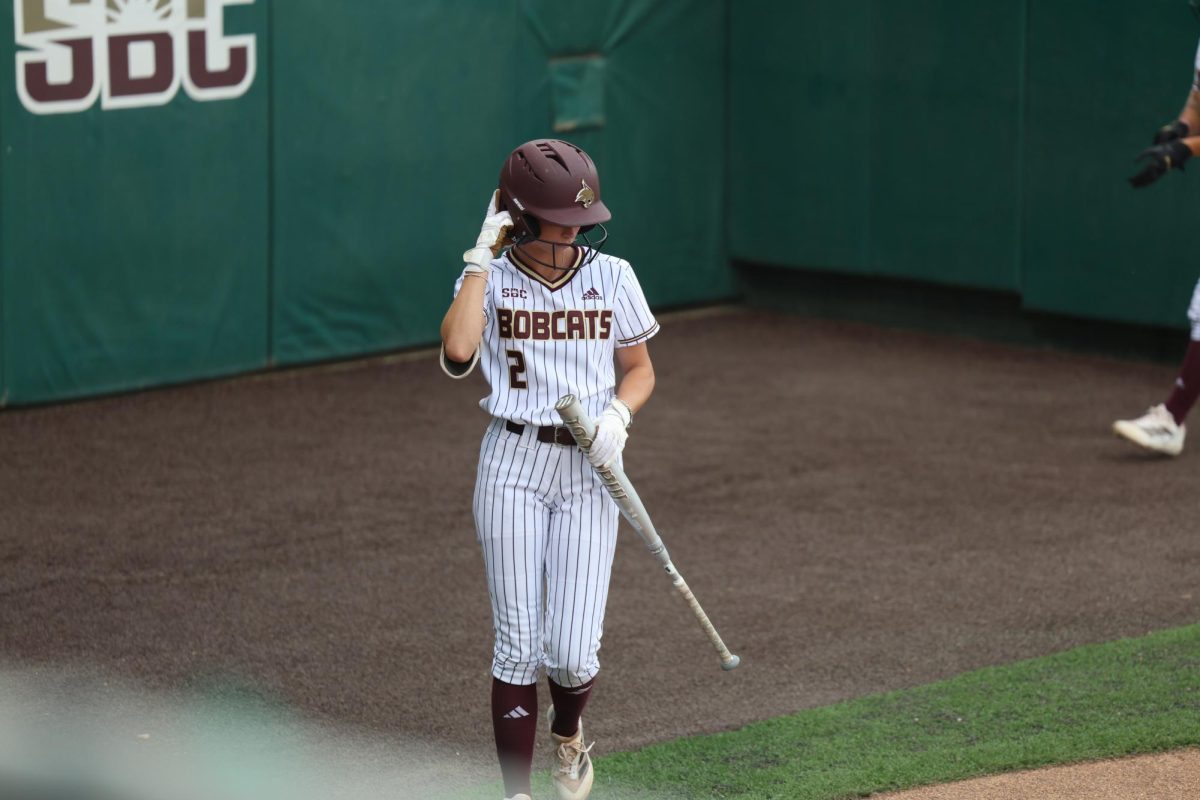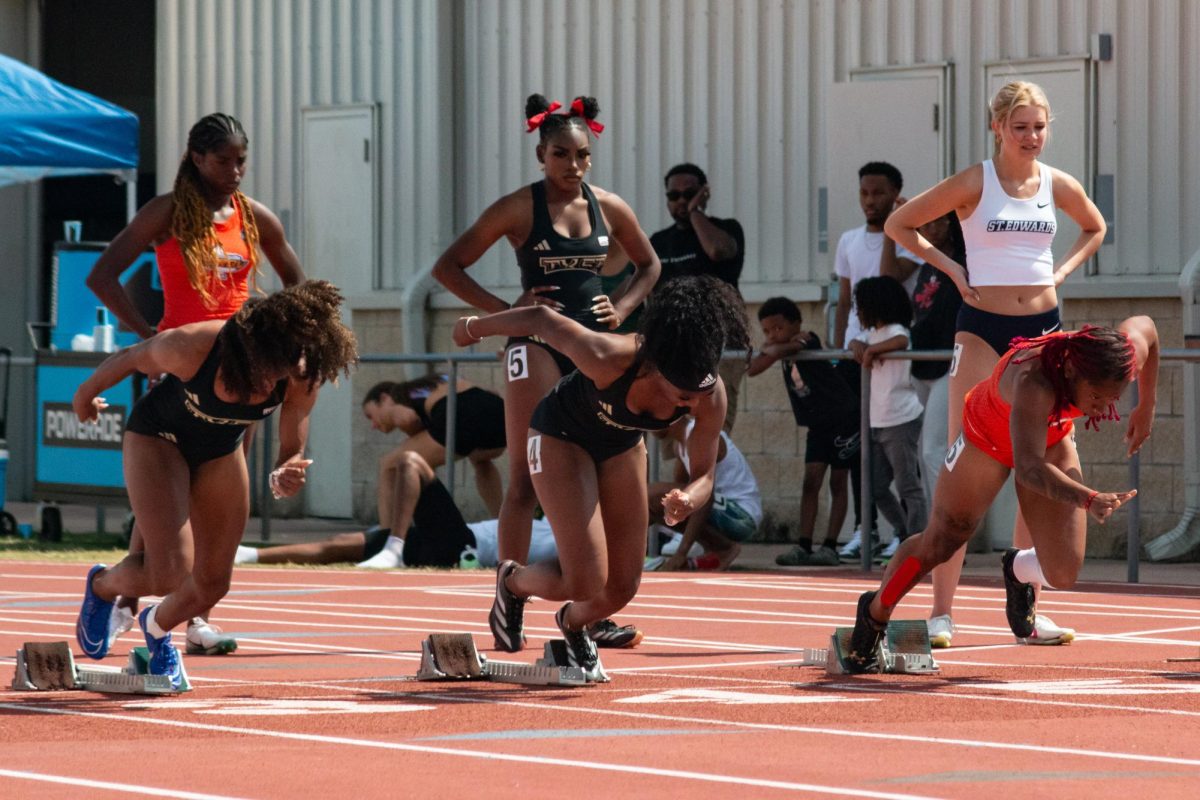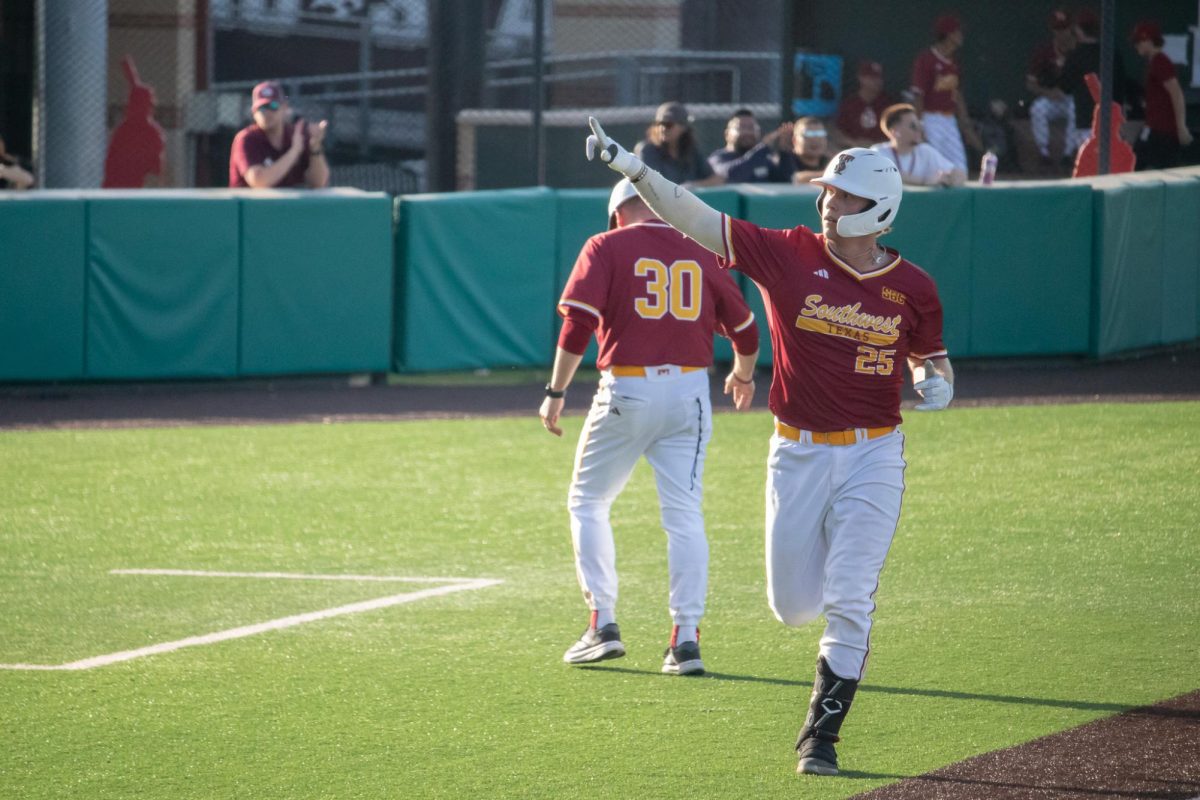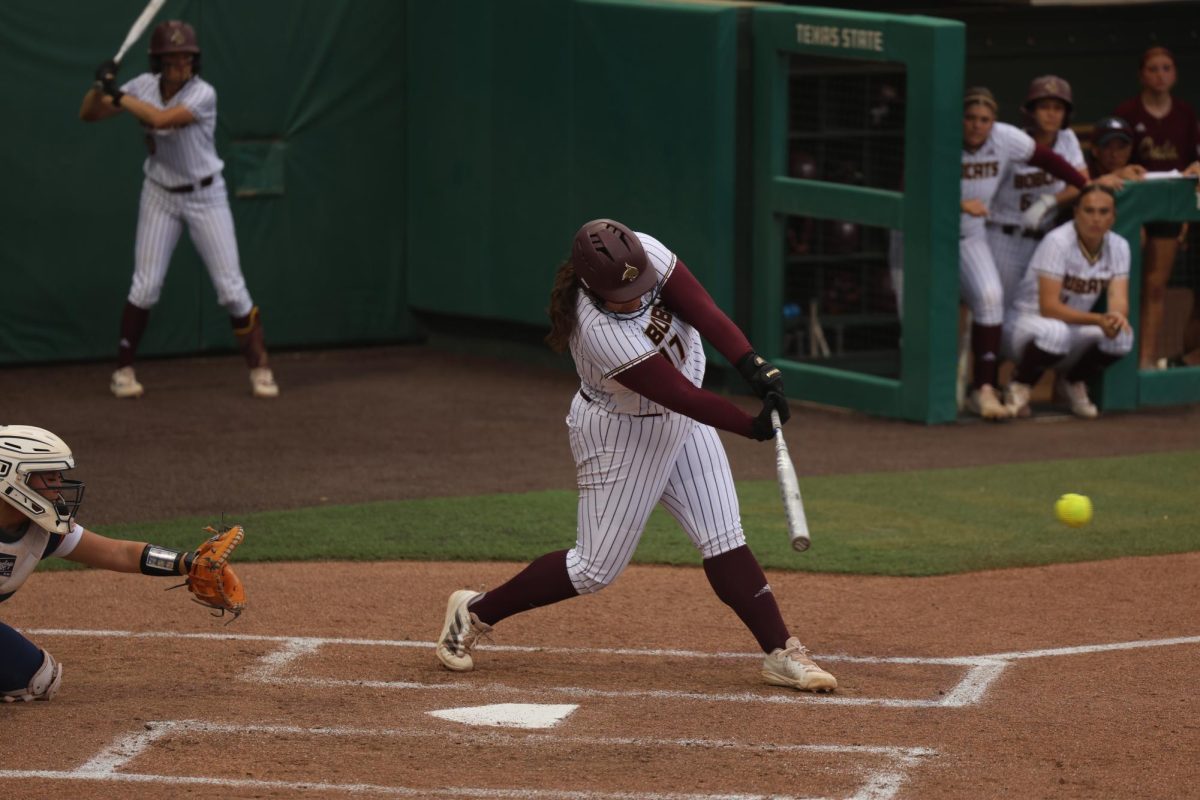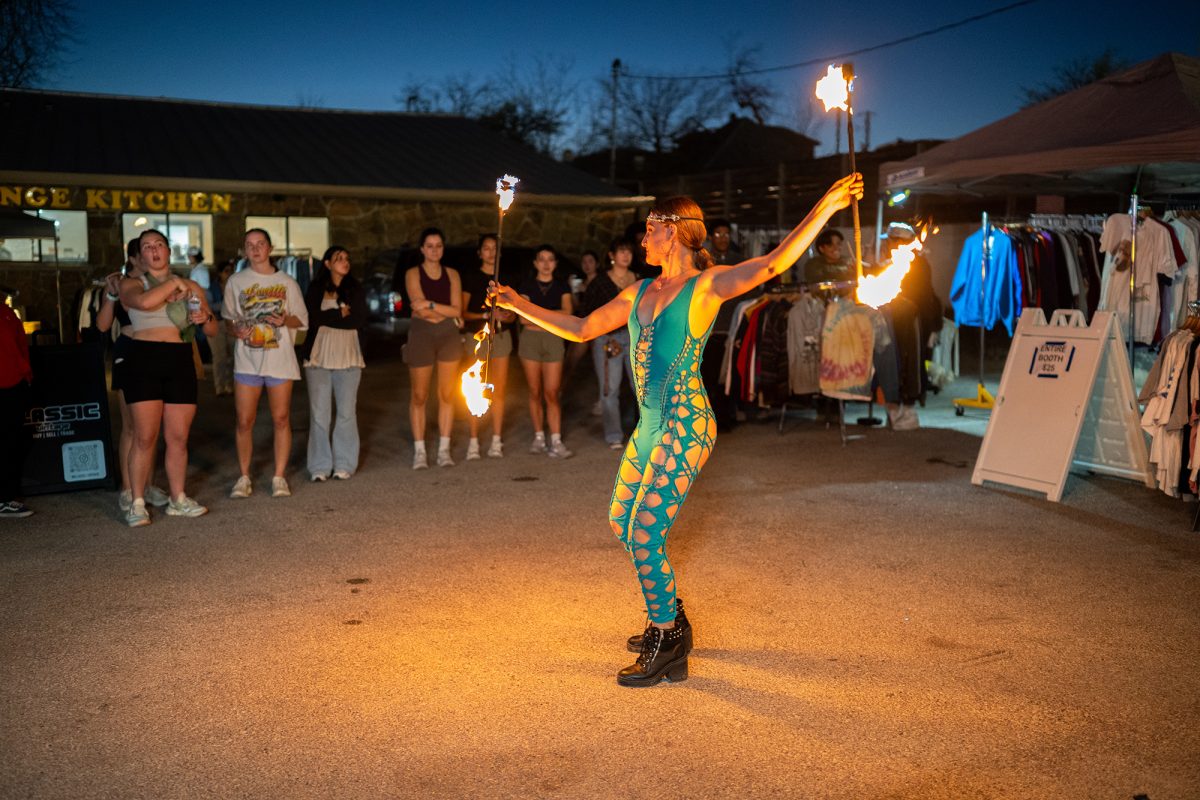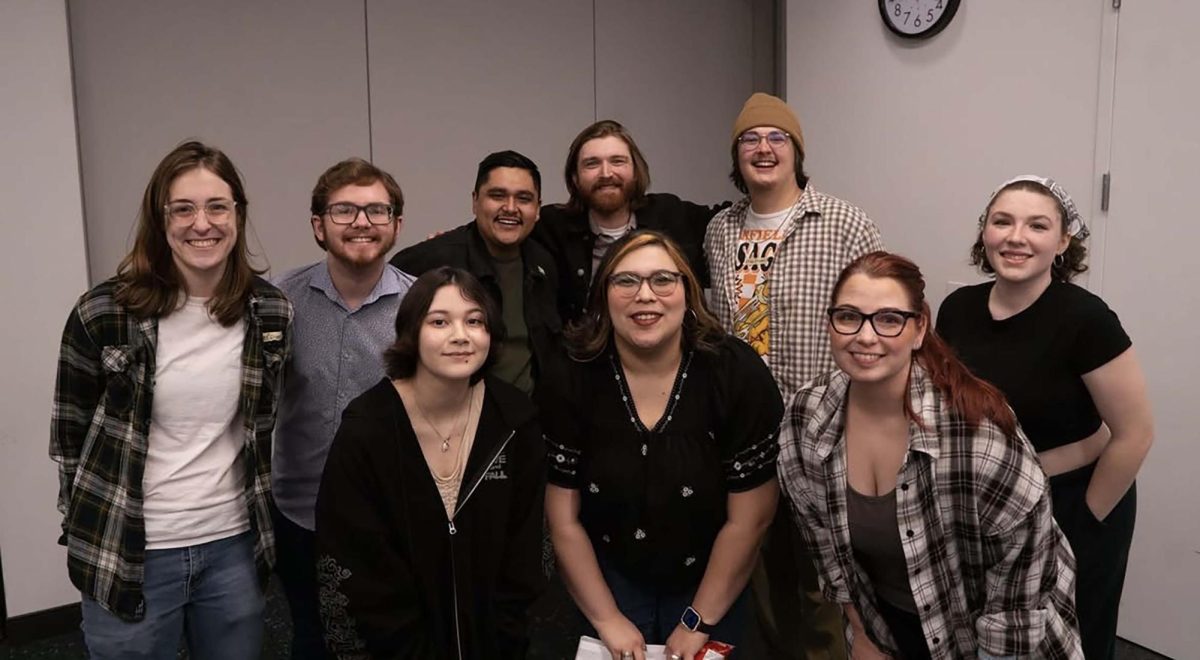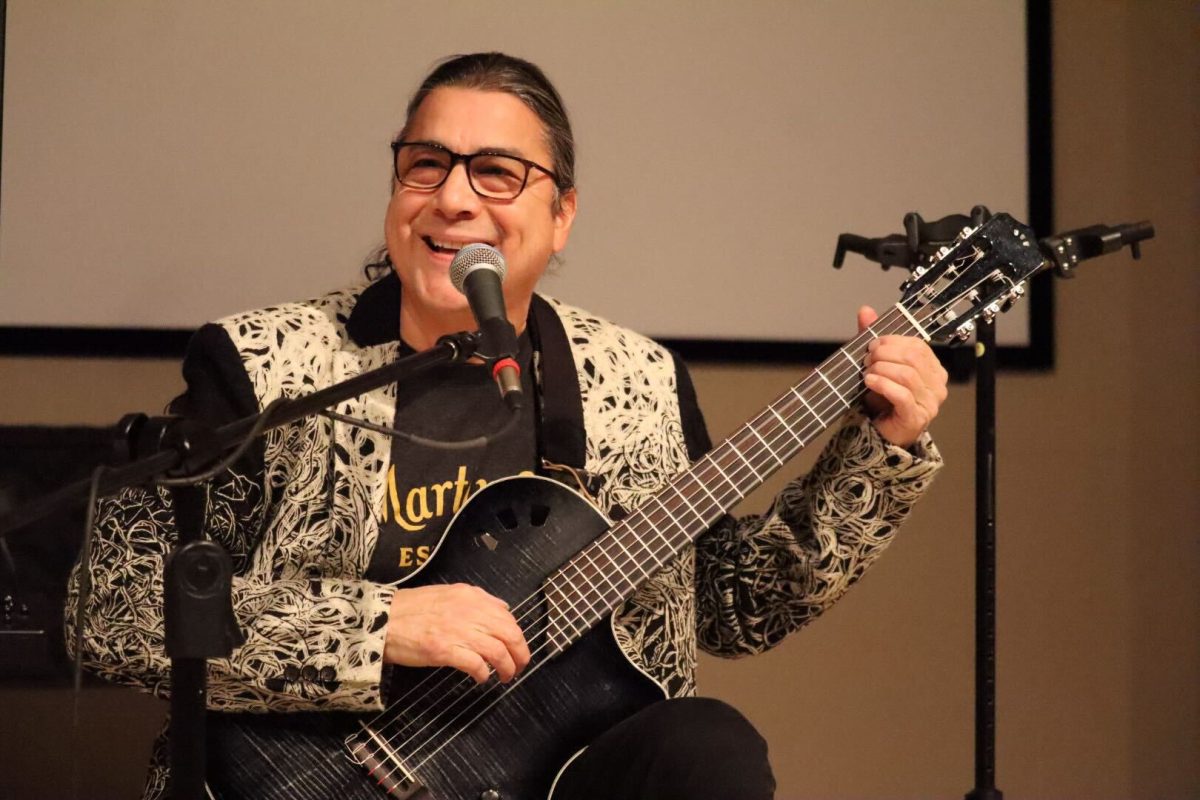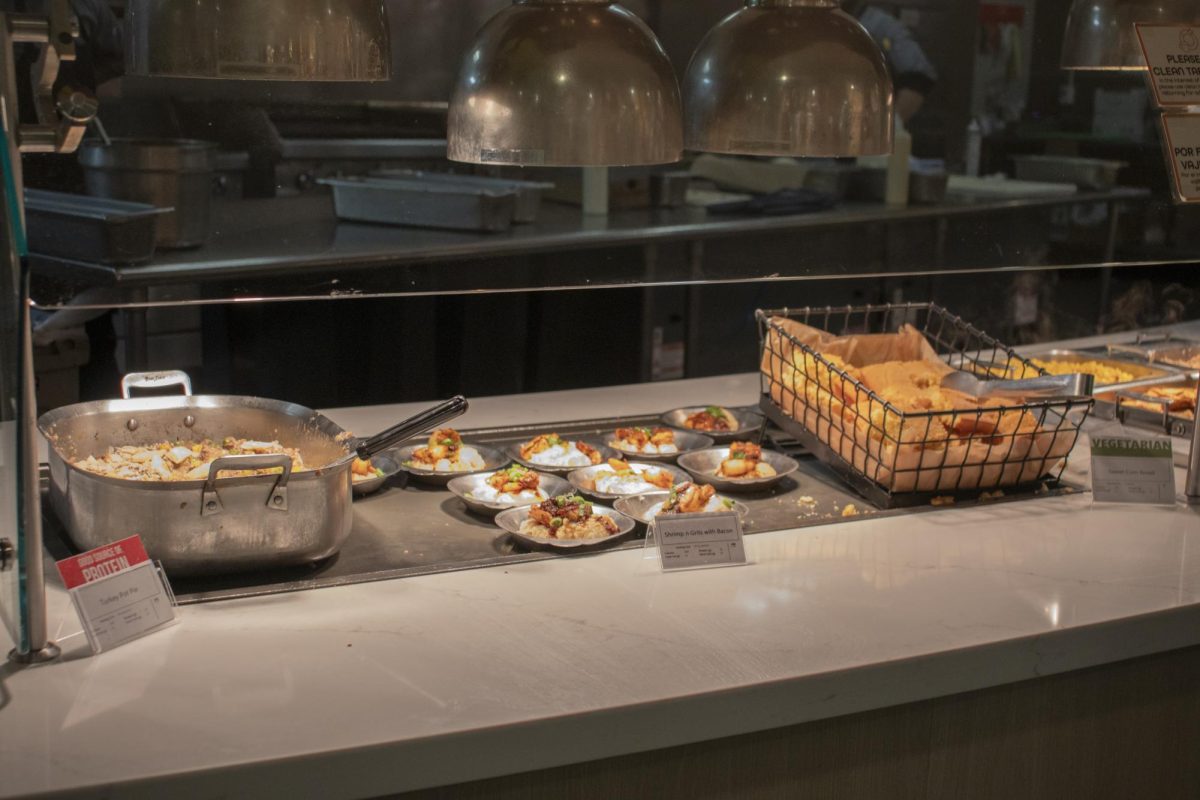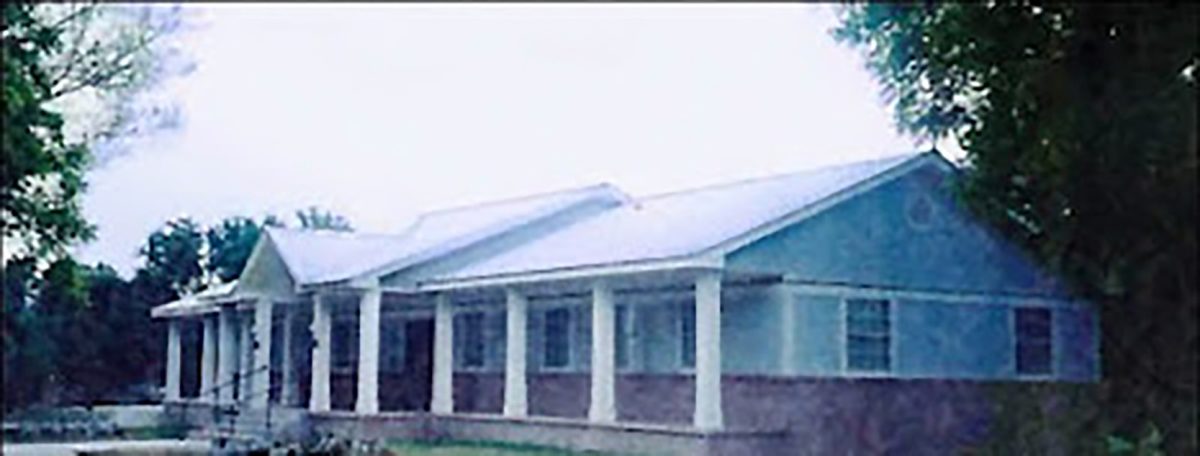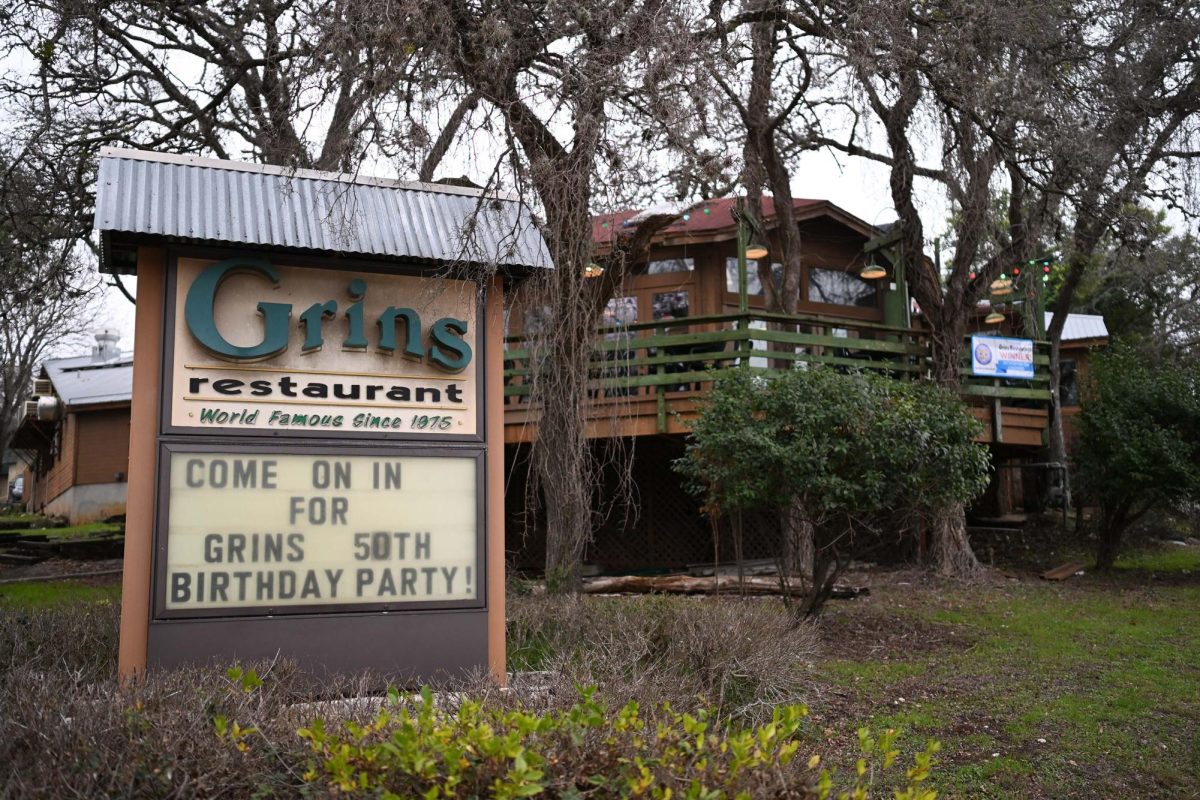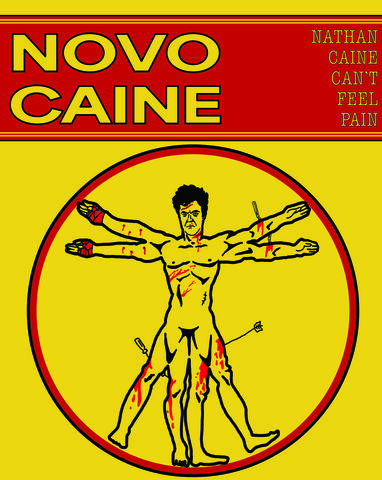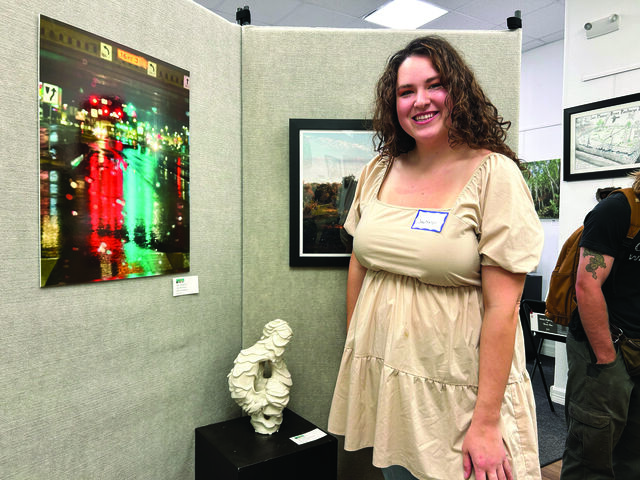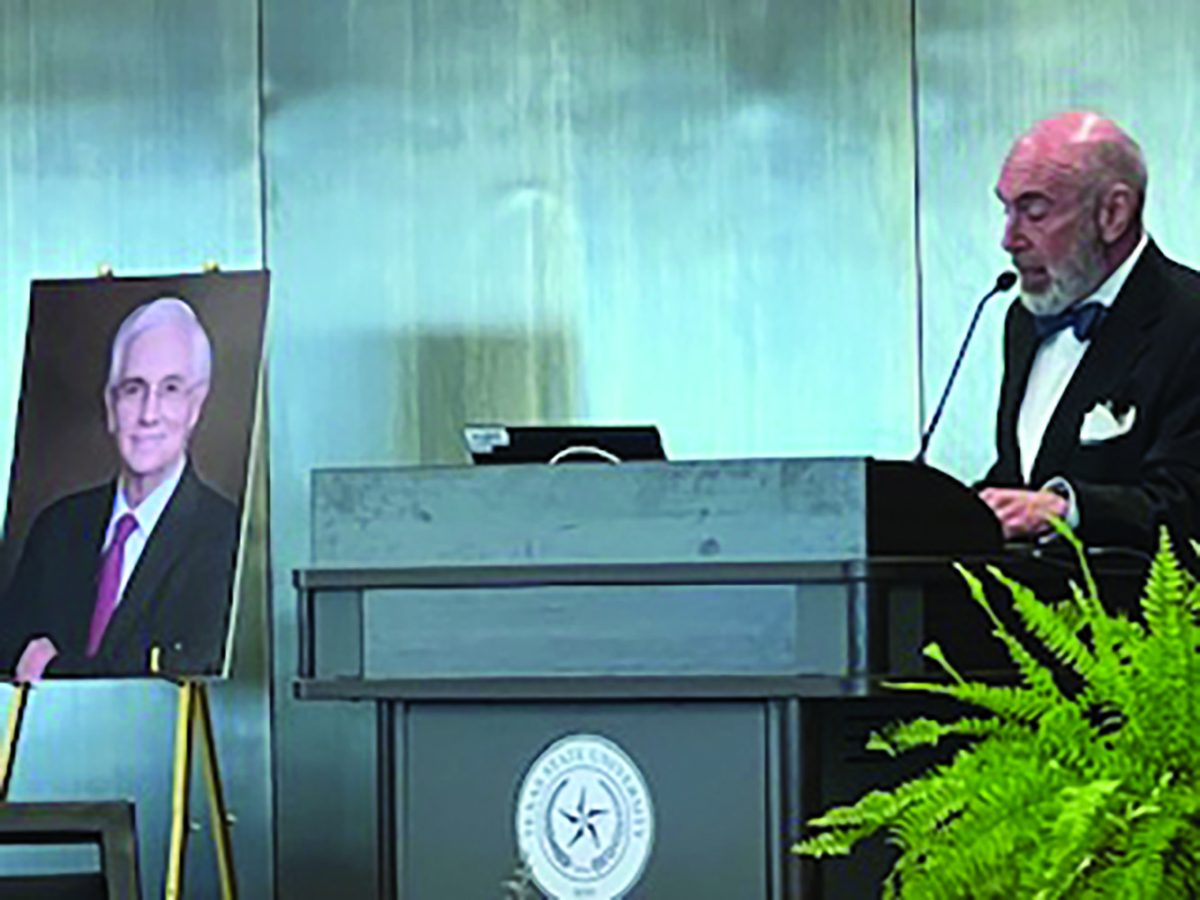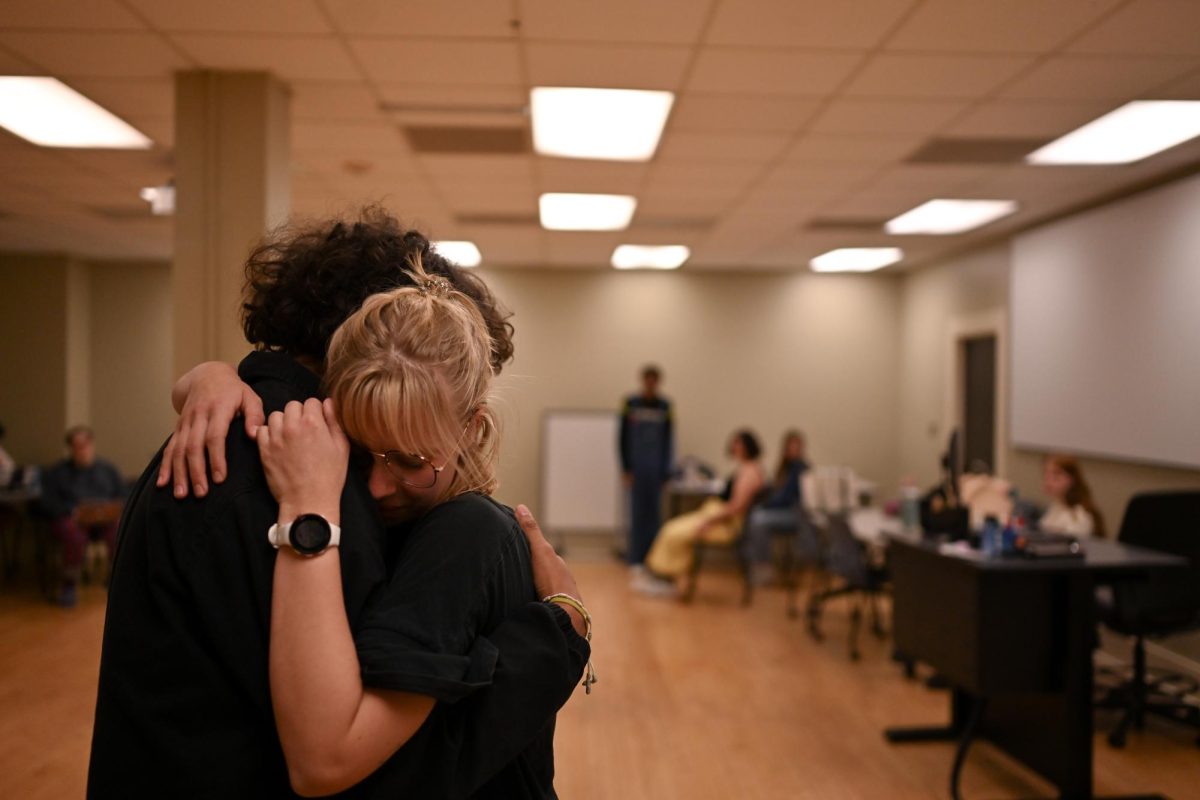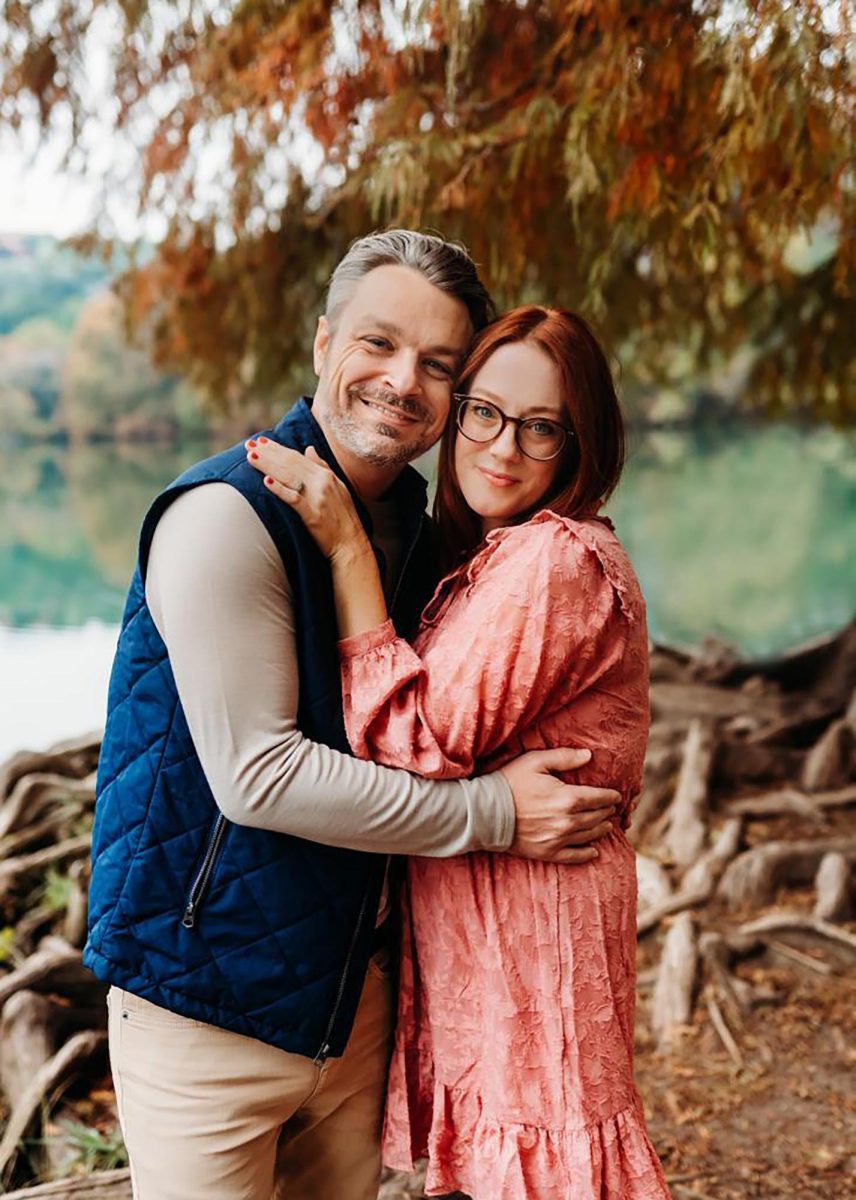Content warning: This article contains discussion of rape and substance abuse.
Members of the Texas State community gathered on Oct. 23 in the Performing Arts Center to hear the inspiring and powerful stories of eight community members for The University Star’s sixth annual Star Stories sponsored by the School of Journalism and Mass Communication.
Jessica Ary — Navy veteran and nontraditional education student
Jessica Ary hid behind a superficial mask to hide her true emotions from a young age. Her eldest son of four children battles addiction and nearly lost his life in a road rage accident. Now 38, Ary is unemployed, a college student at Texas State and is going through a second divorce.
Despite the adversity in her life, Ary found her passion in creative writing and support through Texas State’s counseling department.
“I came here today to implore you to wear your story on your sleeve,” Ary said. “Let people see you, the real you… forage your own path, find your own connections, because when you fail brilliantly, and you will, I hope that you find a foundation to support you so that you’ll fly again once more.”
Monica Charles — social work senior
Monica Charles was born to an absent teenage mother, forcing her to guide her way through life at a very early age. Charles, now 51, lives with substance abuse disorder and is over 2,000 days sober. Through the support she receives in her 12-step program and her faith, Charles helps others in similar situations.
A first-generation college student, Phi Alpha Honor Society member for social work and Dean’s List student, Charles is now committed to helping marginalized groups through social work.
“I realized that I need to be an advocate and a voice for those who don’t have a voice,” Charles said. “Too often, people are reduced to these labels, but I’m living proof that labels don’t define us, they don’t capture our resilience, our potential or our ability to change and grow.”
Felicia Ramos — English freshman
From the age of 11, Felicia Ramos experienced countless hospital visits in her journey of living with Addison’s disease, which affects her hormone regulation. Despite growing up differently from others, Ramos found her strength in her passions and the beautiful moments of life she experienced.
Now 18, Ramos is an English major with a minor in pre-med to help research and advocate for children who face similar struggles.
“By taking a chance on myself, I’ve come so far from that once sick, dying girl,” Ramos said. “Of course, there are days where Addison’s disease makes me feel like I can’t get up… but I always get up stronger than the girl I was before. Adversity gives life that necessary perspective that I think we all need.”
Regina Nelson — Marine Corps veteran and creator of “Fatigues Clothesline”
Regina Nelson was threatened into silence and forced to isolate within her trauma after two Marines raped her during her time in the Marine Corps. Years later, she stumbled across an online platform for women veterans to share their experiences in the military, and Nelson re-lived the trauma she experienced as a young teenager in the Marine Corps.
Through community support first found through Hays Caldwell Women’s Shelter, Nelson began her journey of healing from her trauma. In 2011, she created “Fatigues Clothesline” to help herself and other military sexual trauma survivors share their stories.
“When I first created Fatigues Clothesline and it hit social media, I received over 3,000 emails from fellow rape survivors in less than a month,” Nelson said. “Despite all the chaos that was trapped in our bodies, we gave each other a gift of releasing that chaos through art.”
Erika Nielson — associate professor of instruction
During her time at Texas A&M, Erika Nielson found she had a talent and passion for cycling after spending time with the university’s cycling team. In the summer before her junior year, she got T-boned by a truck while on her bicycle.
If Nielson had not worn a helmet, she may not have survived the accident. She was left with broken bones, fractures, a detached scalp and a traumatic brain injury (TBI). From then on, Nielson had to learn how to live with the effects of her TBI.
“Even when we experienced something that is traumatic or something that we feel is limiting to us… how can it become our superpower so that we can grow as an individual and also create better experiences for what we might do?” Nielson said. “As for me, it’s teaching. For you, it might be anything. How can you make your conditions or labels, your diagnosis, your neuro-divergencies your superpower?”
Sean O’Connor — social work graduate student
At 11 years old, Sean O’Connor’s life was uprooted when his family moved from the New York suburbs to Kansas City, where he was later diagnosed with depression. When O’Connor began high school, he fell into a dangerous cycle of substance abuse that he battled throughout his young adulthood.
Between losing friends to addiction, repeated trips to the hospital for alcohol poisoning and legal ramifications, O’Connor decided to turn his life around and return to college as a graduate student in social work at Texas State.
“I eventually decided to come to Texas State to share my story [and] see how I can help people,” O’Connor said. “I also need to tell people that that’s not all that I am. That’s a part of me, but I have other interests now. Drug use can be a part of identity, but it shouldn’t be the identity that one models itself after.”
Mason Murphy — career counselor
Mason Murphy was born four months prematurely, leaving him with a permanent visual impairment and a severely low birth weight. Throughout his education, teachers did not know how to help a student with visual impairments. Some of Murphy’s college professors even claimed that when he brought up his visual impairment, it made him look lazy.
Despite the school system’s lack of assistance and understanding, Murphy graduated with a bachelor’s degree in journalism and went on to a master’s program in California. Now, Murphy is a career counselor at Texas State and also works with students with disabilities.
“I teach them about how to advocate for themselves, how to seek out accommodations [and] how to disclose their disability,” Murphy said. “I teach them that when they do these things that they can not only be a success right now academically, but they can also be a success in their career down the road and in the future.”
Sergio Carvajal-Leoni — doctoral student in APCE program, adjunct faculty in the School of Journalism and Mass Communication
Sergio Carvajal-Leoni is from Venezuela, where he experienced the dark side of diversity. According to Carvajal-Leoni, the diverse cultures failed to understand each other and conflict began, leading to the country’s downfall.
“As a student, [I] had fascinating experiences sharing classes with peers who come from many backgrounds,” Carvajal-Leoni said. “As a faculty member, I’ve also seen that it can be hard at times to have a voice in a system that may not always value different perspectives… In this time of big challenges, how we treat each other and how we take into account each other’s ideas will be crucial to make sure what happened in Venezuela never happens here.”
Now, Carvajal-Leoni is a doctoral student of education and a professor at the School of Journalism and Mass Communication, allowing him to experience two cultures of people: students and faculty.



